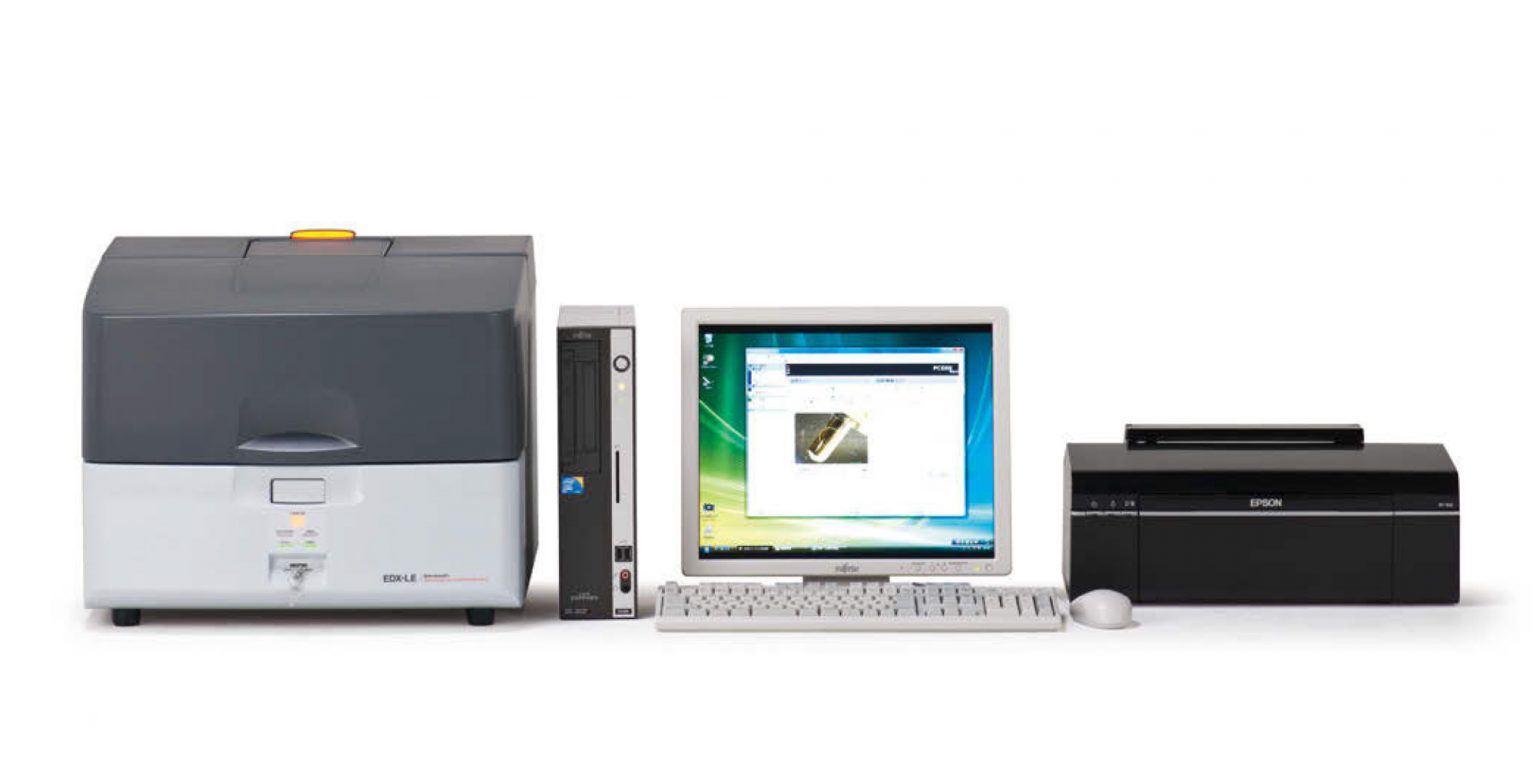Fully Equipped with Essential Functions

All-in-One Design Includes All Functions Required for RoHS/ELV Screening
Overall RoHS/ELV analysis performance is tied to the smooth coordination of a variety of analytical systems, creating a synergistic effect. For this reason, EDX-LE standard equipment includes all the functions required for RoHS/ELV analysis, providing users with the optimal RoHS/ELV screening System.
Obtaining highly reliable analytical results
To improve the reliability of analysis results for elements specified by the RoHS/ELV directive, the elements are analyzed using the calibration curve method and standard sample (check sample) provided with the instrument. (The Fundamental Parameter (FP) method is used to analyze some RoHS elements in metal samples.) Any other elements detected are analyzed using the FP method, which uses theoretical calculations to provide additional information.
Compensates for the influence of differences in shape of actual samples on analysis results
X-ray intensity differs with the shape and thickness of samples, even if they contain the same material, and will have an impact on quantitative values. EDX-LE utilizes a BG internal standard method* to eliminate the effect of shape and thickness in order to provide highly precise results.
Large Sample Chamber
Despite its compact body, the EDX can accommodate samples up to W370 mm × D320 mm × H155 mm.
Organize measurement results in a list
List data stored in Excel format.
Accommodates a Variety of Samples
When measuring foreign substances and samples with multiple parts, the sample observation camera allows the analysis position to be easily specified by checking the camera image. If the sample is small or if specific locations on the sample are being measured, the collimator can be used to change the X-ray exposure region.
Qualitative-Quantitative Analysis
The EDX-LE can perform qualitative analysis and non-standard quantitative analysis based on the FP method. This means it can be used to analyze foreign substances or differentiate between different materials.
Matching (Steel Type Identification, Product Identification)
Comparing measurement data to a data library of steel types allows automatic identification for everything from materials
closest to the sample, to the 10th position on the library list. In addition to matching by intensity, matching by content is also available if the user creates and registers libraries of concentrations and elements.
Thin-Film Analysis
The Film FP method obtains not only single layer, but multilayer film thickness, composition, and deposit volume. It is also well-suited to the measurement of Pb contained in plating. (Information on the layer order (including base) and the constituent elements is necessary.)





